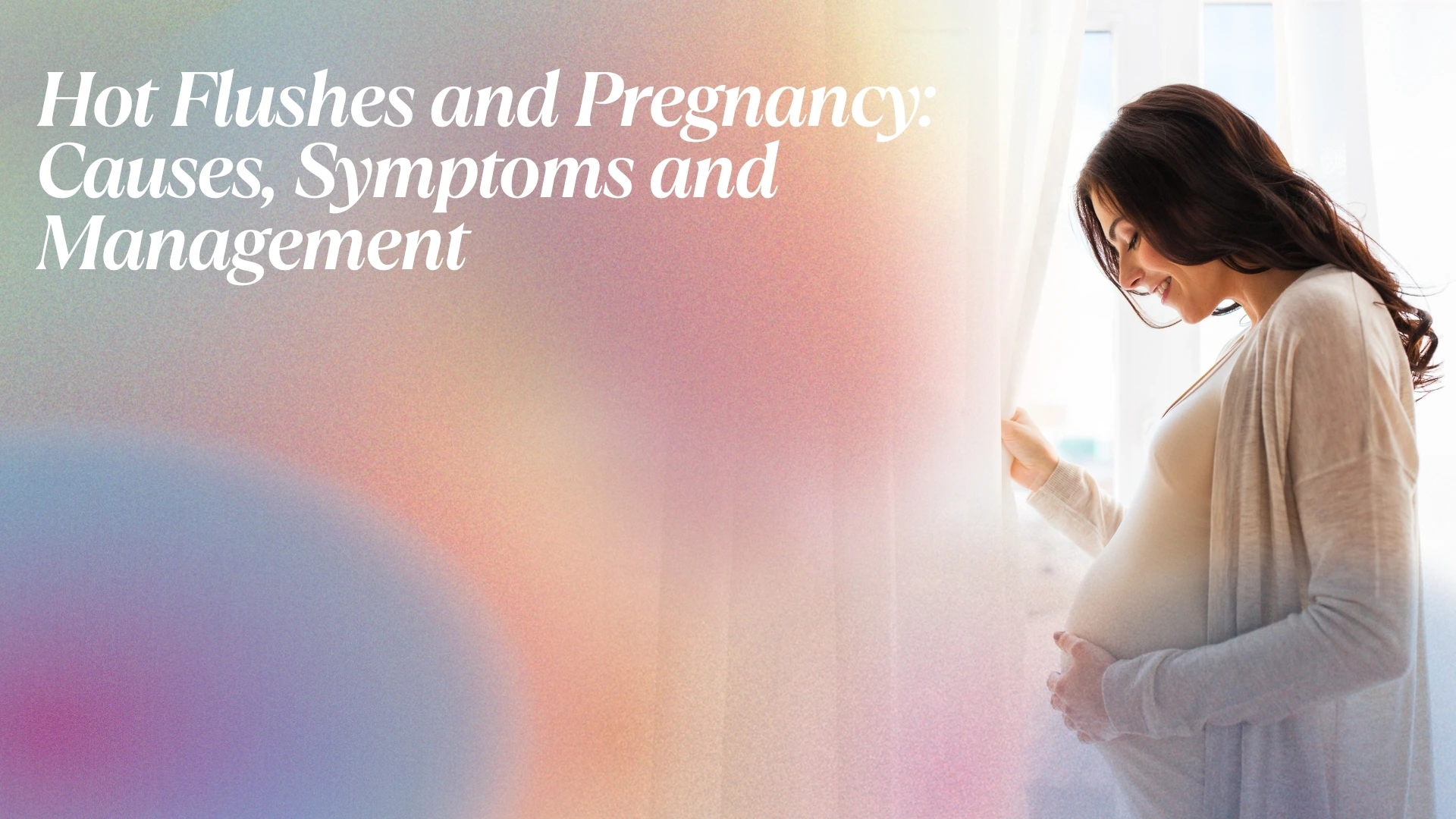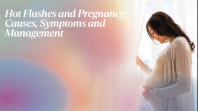Hot Flushes and Pregnancy: 6 Effective Management Strategies
October 20, 2024

Pregnancy is a transformative journey marked by a myriad of physical and hormonal changes. While many expectant mothers anticipate discomforts like morning sickness and fatigue, one lesser-known yet significant experience that some women encounter is hot flushes. These sudden sensations of intense heat can be surprising and uncomfortable, but understanding their causes, symptoms, and management strategies can help expectant mothers navigate this aspect of their prenatal journey with greater ease.
What Are Hot Flushes During Pregnancy?
Hot flushes, commonly associated with menopause, are sudden feelings of heat that can cause flushing, sweating, and a rapid heartbeat. During pregnancy, some women may experience similar sensations due to hormonal fluctuations and increased blood flow.
What Causes Hot Flushes During Pregnancy?
- Hormonal Changes: Dramatic shifts in hormone levels, particularly estrogen and progesterone, can affect the body’s temperature regulation, leading to hot flushes.
- Increased Blood Flow: Blood volume and circulation increase to support the growing fetus, contributing to feelings of warmth.
- Metabolic Changes: Alterations in metabolism during pregnancy can affect thermoregulation and predispose women to hot flushes.
- Emotional Stress: Emotional ups and downs can exacerbate physical symptoms, including hot flushes.
Symptoms of Hot Flushes During Pregnancy
- Sudden sensation of heat, often concentrated in the upper body and face
- Flushing or reddening of the skin
- Increased heart rate or palpitations
- Profuse sweating, particularly during the night
- Feelings of discomfort or anxiety accompanying the hot flush
When Do Hot Flushes Typically Occur During Pregnancy?
Hot flushes can occur at any stage of pregnancy but are most commonly reported during the first trimester and in the weeks leading up to labor due to pronounced hormonal fluctuations.
Management Strategies for Hot Flushes During Pregnancy
- Stay Cool: Dress in lightweight, breathable clothing and use fans or air conditioning to maintain a comfortable temperature.
- Hydration: Drink plenty of water to help regulate body temperature and alleviate hot flushes.
- Stress Management: Practice relaxation techniques like deep breathing, meditation, or prenatal yoga to reduce stress levels.
- Balanced Diet: Consume a diet rich in fruits, vegetables, and whole grains while avoiding spicy foods and caffeine.
- Rest: Prioritize adequate rest and sleep, as fatigue can exacerbate hormonal fluctuations.
- Natural Remedies: Consider complementary therapies such as acupuncture or aromatherapy, but consult a healthcare provider first.
- Medication: In severe cases, healthcare providers may prescribe low-dose hormone therapy or other medications, monitoring the risks and benefits closely.
When to Consult a Healthcare Provider
While hot flushes are common during pregnancy, they can sometimes indicate underlying conditions such as hyperthyroidism or preeclampsia. Expectant mothers experiencing severe or persistent symptoms, especially if accompanied by dizziness, fainting, or abnormal vaginal bleeding, should seek medical evaluation promptly.
Conclusion
Night sweats during pregnancy can be an unexpected and uncomfortable symptom, but they are usually a normal part of the prenatal experience. Understanding the underlying causes, symptoms, and management strategies can empower expectant mothers to navigate this aspect of pregnancy with confidence and comfort. By prioritizing self-care and seeking support from healthcare providers when needed, women can effectively manage night sweats and focus on the joyous journey of bringing new life into the world.



























